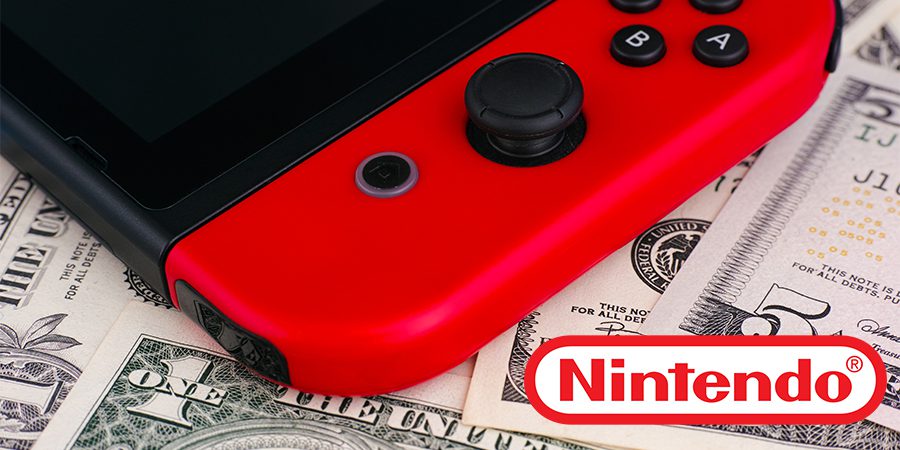In this article, we’ll delve into the story of Gary Bowser, a console hacker and former member of the notorious hacking group Team Xecuter, who has been released from prison after serving two years of his 40-month sentence.
We will explore the reasons behind his release, the consequences he still faces, and the broader implications for the gaming industry.
Key Takeaways:
- Gary Bowser released from federal prison after serving two years for his role in hacking group Team Xecuter
- Team Xecuter targeted by Nintendo for creating and selling mod chips for gaming consoles, including the Nintendo Switch
- Bowser still owes $10 million in restitution to Nintendo, having paid back only $175 so far
- The case highlights the lengths to which gaming companies pursue legal action against hackers and the severity of punishments
The Release of Gary Bowser
Gary Bowser, a console hacker and one-time member of the infamous Team Xecuter, has recently been set free from federal prison after serving over two years of his original 40-month sentence.
According to TorrentFreak, Bowser’s release came as a result of good behavior during his time behind bars.
Upon his release, Bowser was transferred to a detention center in Washington, where he now awaits his return to his home country of Canada.
His journey to freedom began in 2020 when he was arrested and charged with fraud for his role in the hacking group that created and sold mod chips for popular gaming consoles, including the Nintendo Switch, 3DS, NES Classic Edition, and Sony’s PlayStation Classic.
The Ongoing Consequences for Bowser
Though Bowser may be free from prison, his legal troubles are far from over.
In addition to his time served, he has been ordered to pay a staggering $10 million in restitution to Nintendo as part of a piracy lawsuit settlement.
This is in addition to a separate federal court order requiring him to pay the gaming giant another $4.5 million.
So far, Bowser has managed to pay back only $175 of the total amount.
Bowser’s financial burden is likely to follow him for the rest of his life, as Nintendo is entitled to take 25-30% of his monthly gross income until the debt is paid.
Even while in prison, Bowser was able to work and contribute to the repayment of his debt, albeit at a rate of just $25 per month, totaling $175 over the course of his sentence.
Team Xecuter and the Gaming Industry
Team Xecuter, the hacking group Bowser was a part of, has long been a target of Nintendo’s legal team.
The group specialized in creating and selling mod chips for various gaming consoles, which allowed users to play pirated games or use unauthorized software on their devices.
The gaming industry has always had a contentious relationship with hackers and modders, as piracy can significantly impact game developers and console manufacturers.
In the case of Team Xecuter, their actions caught the attention of not only Nintendo but also other major players in the industry, leading to an aggressive legal pursuit.
The Severity of Punishments in the Legal System
Gary Bowser’s case offers an interesting insight into the severity of punishments meted out by the legal system for those involved in hacking and piracy.
Bowser, who admitted to his crimes in court, was given a 40-month prison sentence and ordered to pay millions in restitution to Nintendo.
However, Bowser was not the only member of Team Xecuter to face legal consequences.
Max Louarn, a French citizen and alleged leader of the group, has so far managed to avoid extradition to the US to face charges.
It’s believed that Louarn helped the company make millions during its operation.
The severity of punishments in cases like these highlights the lengths to which companies like Nintendo and other gaming giants will go to protect their intellectual property.
With astronomical fines and lengthy prison sentences, hackers and pirates are faced with life-altering consequences should they be caught.
Conclusion
While Gary Bowser has been released from prison due to good behavior, his legal troubles are far from over.
He still owes a staggering $10 million to Nintendo, a debt that may haunt him for the rest of his life.
This case highlights the extent to which gaming companies like Nintendo are willing to go to protect their intellectual property and the severe consequences hackers face when caught.
As the gaming industry continues to evolve and grow, it remains to be seen how these issues will unfold in the future.
Will the severity of punishments act as a deterrent to potential hackers and modders, or will it only fuel the underground world of console hacking and piracy?
For now, Gary Bowser’s story serves as a cautionary tale for those considering engaging in similar activities.
The consequences of such actions can be life-altering, with the potential to impact not only the individuals involved but also the gaming industry as a whole.
The legal battle between Nintendo and hacking groups like Team Xecuter demonstrates the ongoing struggle for control over gaming content and the delicate balance between protecting intellectual property rights and fostering creativity within the gaming community.
While it is essential for companies to protect their assets and investments, it is also crucial to recognize the potential for innovation and growth that can come from the creative tinkering of dedicated fans and enthusiasts.
 Sections of this topic
Sections of this topic
















